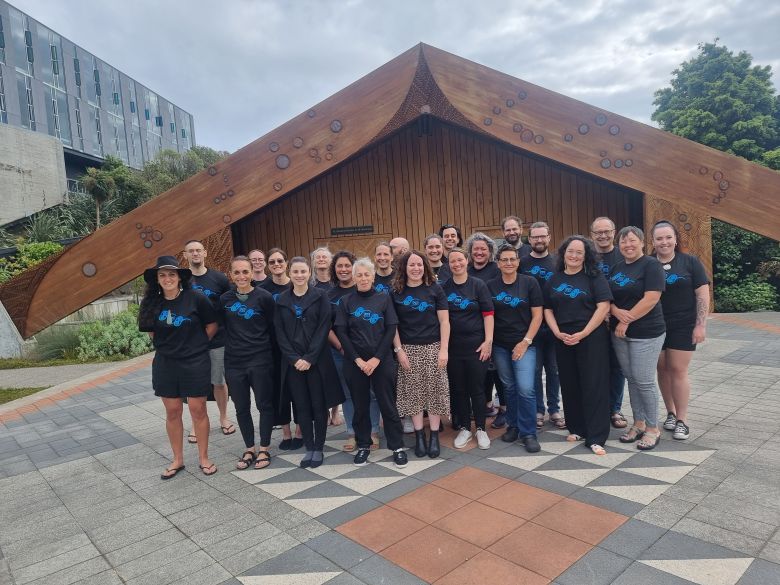Wānanga an important milestone for Māori academic career development programme
15 December 2022 | news

“Te Kei makes us look out from our silos and see the rest of the uni world and what that offers us and where we sit within it. This then reminds us who we are, what we have achieved, what we can achieve, through seeing and hearing others who have navigated this academic pathway before us.”
This reflection is from one of the 25 early career Māori academics who last month took part in a three-day residential wānanga (forum) for Te Kei, the first Māori academic career development programme funded by Universities New Zealand – Te Pōkai Tara.
Another participant said: “Having a Māori space, our people and time to stop and reflect is well overdue and will make a difference with Māori academics staying in the academy or leaving for jobs elsewhere.”
Launched in July, Te Kei is guided by mātauranga Māori and has been designed by experienced Māori academics and university leaders to support the professional and personal development of early career Māori academics.
It has two primary goals:
- To prepare and support Māori early career academics for careers within Aotearoa New Zealand universities.
- To increase Māori leadership and management capability across Aotearoa New Zealand universities.
“The wānanga was an important milestone for Te Kei. It brought together the programme's first cohort of early career Māori academics to share experiences, hone their pūkengatanga [skills] and gain key insights into the tikanga [practices] of academic life, all within the nurturing and inspiring surroundings of Massey University’s Te Rau Karamu marae,” says Associate Professor Meegan Hall (Ngāti Ranginui and Ngāti Tūwharetoa).
Associate Professor Hall is Assistant Vice-Chancellor (Mātauranga Māori) at Te Herenga Waka – Victoria University of Wellington and Te Kei Programme Developer and Convenor along with Universities New Zealand Senior Manager Māori and Equity Fiona Johnson-Bell (Raukawa ki Wharepuuhunga, Waikato and Ngāpuhi).
She says: “Staying together in person helped the group to quickly develop a sense of whanaungatanga [connection] based on a shared understanding of their tuakiritanga [identity] as Māori academics.”
A series of guest speakers at the wānanga provided examples of their academic careers as Māori and their research interests and experiences, where others spoke about the wider higher education system.
The first Te Kei cohort came together mostly as strangers to each other, from diverse disciplinary backgrounds and with a variety of experiences working across the country’s different universities, with many feeling isolated in their own institutions and roles.
As a participant put it: “The rush and being busy all the time at uni has made it hard to work out where we sit/stand within our own universities, therefore this can make you feel like you are working in your own bubble or in silos.”
For Associate Professor Hall, one of the key highlights of the wānanga was: “Seeing the participants bond with each other and share their research and teaching experiences”.
Another was: “Hearing from our guest speakers and seeing how they inspired, challenged and brought the participants together.”
The cohort has now moved on to the online component of the programme.
“Māori academics are crucial for the future of higher education in Aotearoa New Zealand,” says Associate Professor Hall. “Through Te Kei, we hope to support more to flourish and thrive.”
